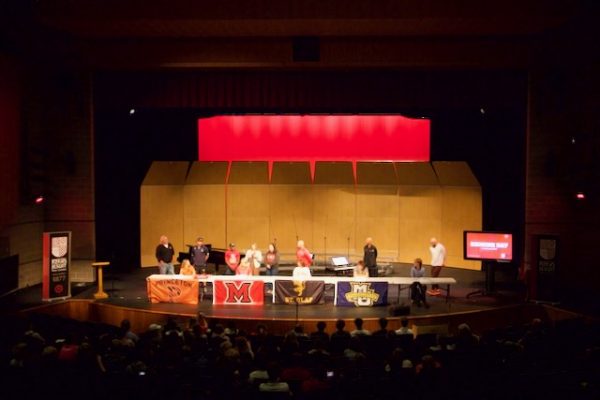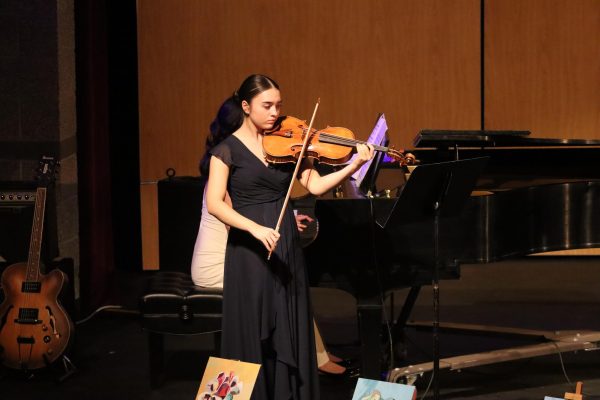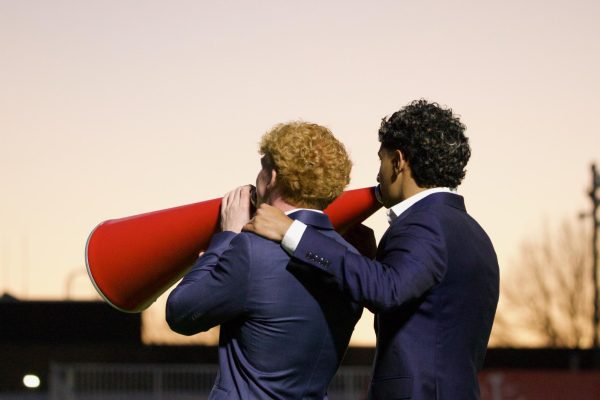Teens: Your Vote Counts On The Ballot
Does it pay to know about politics at a young age?

By the end of December more than half of the senior class will be eighteen years old and will face many opportunities, privileges, and freedoms. Among these is the right to legally vote, but are we well enough informed on the political world to make decisions that will affect a District? A State? A Country?
The youth vote in the past decade has become increasingly important.
“Young voters have brought a new dimension to voting in recent. During the 90’s, young voters were criticized for lack of participation. Since 2000, youth voting rates have increased by about 20 percent,” says Matt Best, a U.S. Government teacher at Regis Jesuit High School.
“The resurgence of the young vote during Obama’s first presidential race boosted the democratic vote, resulting in Obama’s election. The youth vote is also a strong liberal bloc that helped propel Obama to the presidency in 2008,” Best said.
It is important for campaigners to make gathering the youth vote a focal point of their campaign. According to Project Vote, youth from 18-29 made up 17 percent of the total voter population.
Although the number of youth voters is consistently dwarfed by the vote of the older generations, the youth voting participation is increasing every year.
Dr. Peter Hanson, PhD., Assistant Professor of political science at the University of Denver says, “young voters can be extremely consequential in elections. The key question is whether they will turn out.”
In order to attract the youth vote it is essential to have “Compelling candidates, easy access to voter registration, civic educations, an image of voting as a cool thing to do” Best said.
We polled 200 juniors and seniors at Regis Jesuit about where they get their political news and what influences their views. We asked: How informed would you say you are with current political events? Where do you get your information about politics and political events from? How informed and up to date do you think the younger generation is as a whole?
The results of the survey were clear. Sixty-five percent of students described themselves as somewhat knowledgeable on political events. When the same students were asked to rate how knowledgeable they thought their peers were, a staggering 68 percent said that the younger generation was not very knowledgeable.
Results of the survey show that the majority of participants obtained their political news from television or online sources, as opposed to traditional news sources such as newspapers or magazines.
The rise of technological advancements has also made it even easier for people, especially younger voters, to access information about politics.
“We’re really in this unique time where almost everyone is walking around with a smartphone in their pockets and a lot of these people are connected through Twitter or Facebook so we want to get our message directly to the people”, said Dan Aschkinasi of the Colorado Democratic Party (CDP) in a phone interview.
“Someone can post a question directly to us after we post something on social media and I can respond right back to them in a matter of seconds and that is on the record, people can reference it,” Aschkinasi said.
Although the younger generation obtains information from multimedia sources, Dr. Hanson stresses, “people are likely to seek out sources of information they already agree with. So as opposed to young people being persuaded by something they find on the internet, it’s a whole lot more likely that they’ll find something that mirrors a view they already have.”
The young vote can sway the outcome of an election one way or the other, so political parties are faced with the challenge of appealing to young voters. One way these parties are starting to connect with today’s younger generation is through the multimedia super-machine, Twitter.
“We have started to double down on social media side,” Aschkinasi said. “Twitter is, in all reality, the conversation location for a majority of news outlets. When a news reporter has a breaking news story or they want to get the story out there as fast as they can they use twitter, so we have followed suit.”
With the upcoming sources of information making their worldwide debut on the internet, paper sources are falling behind.
One Vote can Make a Difference
Besides the fact that the United States was founded on putting the people’s interests first, one vote can make a difference.
“If you look at this last round of elections in 2013, Broomfield county had a ballot initiative that would prevent fracking in that county. Initially that measure failed, and all these people were upset that fracking would continue in their county but because of how many people voted it triggered a recount and they ended up figuring out that 17 votes made the difference for the election and ended up going towards the anti-fracking voters so now Broomfield has a moratorium on fracking and that impacts everyone, the cost of gas at the pumps, the water we drink and many other aspects of our lives here in Colorado,” Aschkinasi said.
Dr. Hanson believes that today’s young population is suffering the consequences of their poor turnout at the polls.
“If you are a young person in the U.S. you are not a priority of our political system. It’s really clear if you just look at where our budget dollars go,” Hanson said. “We put billions of dollars into medicare. medicare is untouchable. we put billions of dollars into social security, social security is untouchable. Meanwhile, college is becoming unaffordable, student loan programs are on the chopping block. Student grants to college are very difficult to get.”
Older voters are clearly taking advantage of the fact that young voters are much less likely to show up when election day comes around.
“If you’re a politician that tries to cut medicare, every senior citizen in town comes to vote you out of office,” says Hanson, “You can target student loans, and not suffer any consequences, because young people are less likely to vote.”
This statement alone should be enough incentive for all young voters to cast their vote in every election, but the truth of the matter is that today’s youth is just not very interested in politics. Political interest goes up in a person as they get older, but the youth should be just as concerned with politics because many of the issues in today’s world of politics will have an effect on their daily lives.
Dr. Hanson adds, “if there’s one message you can bring to students to try and encourage them to be active, it’s that their own interests are at stake.”
Voting is a right that we should not take for granted.
Many countries do not allow their citizens to vote, and to throw away your chance at making a difference in the fate of your country is a privilege that should not be wasted.
“Voting is the most important thing we can do and it’s the single constitutional right that every single person has the ability to use,” Aschkinasi said. “Voting has become so easy with the mail-in ballot, it’s almost silly not to vote. That one vote can make a huge difference.”



